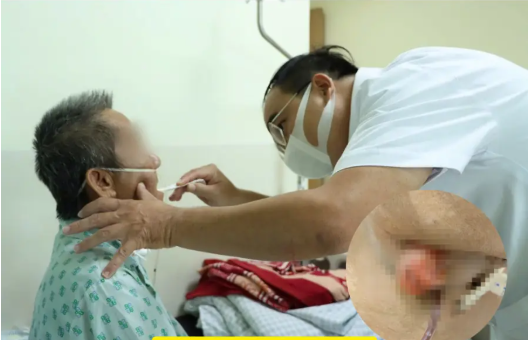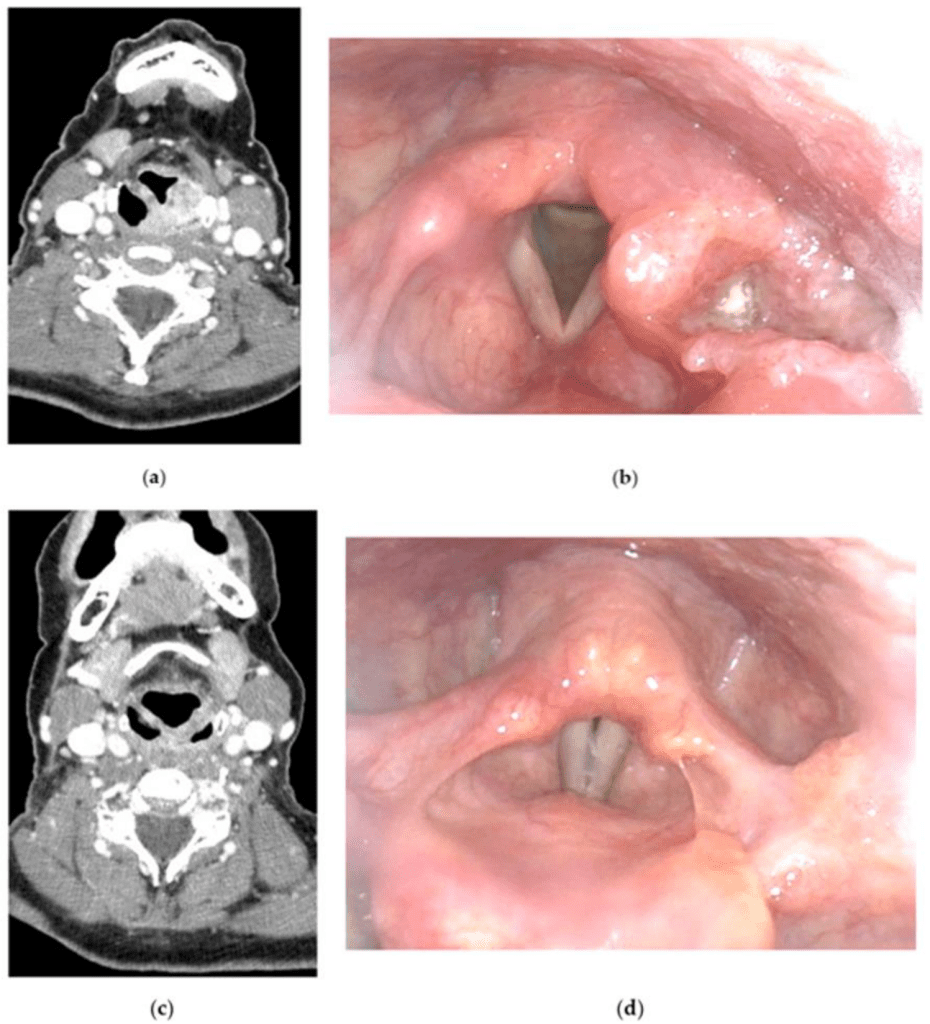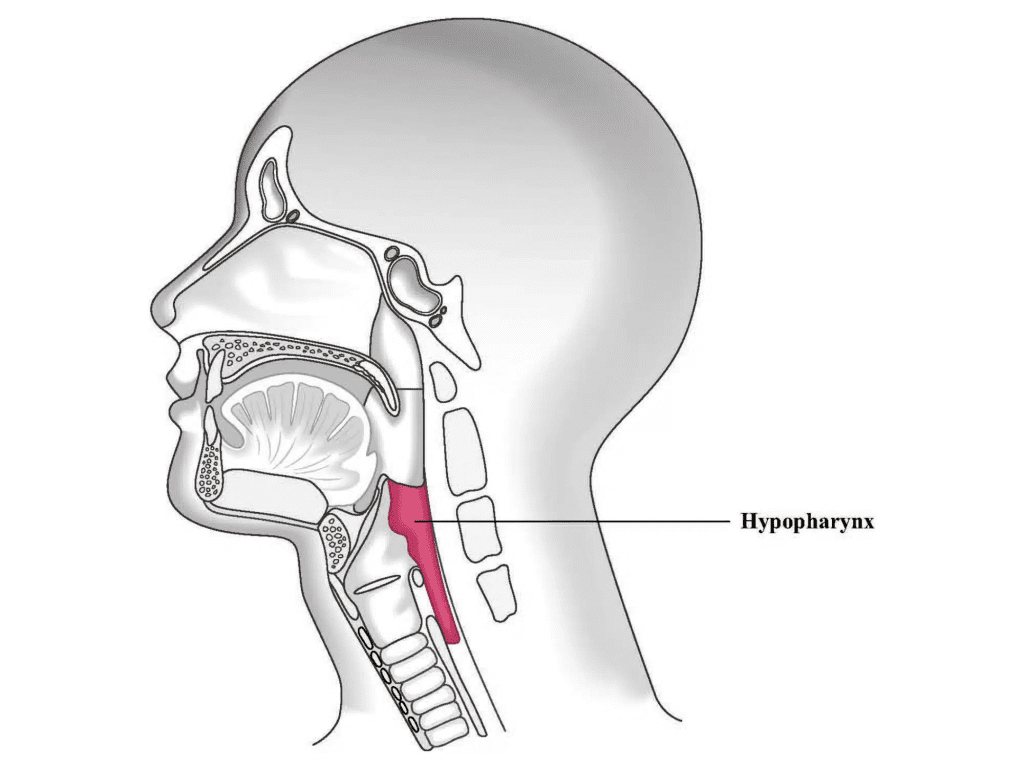Cancer is a silent predator, often progressing unnoticed until it reaches an advanced stage. A shocking 77% of cancer patients admitted to hospitals are diagnosed at stage 4, when treatment becomes incredibly challenging. Among these cases, hypopharyngeal cancer—a type of throat cancer—stands out for its aggressive nature and poor prognosis.
Recently, doctors performed a groundbreaking pharyngeal and esophageal reconstruction for a patient suffering from stage 4B hypopharyngeal cancer. The innovative double-vessel jejunal flap technique, developed with expertise from the International Cancer Institute in Osaka, Japan, has given new hope to patients facing what was once a death sentence.
Hypopharyngeal Cancer: A Silent but Deadly Threat

Hypopharyngeal cancer affects the lower part of the throat (hypopharynx), making swallowing and speaking difficult. The cancer often goes unnoticed until it has spread to surrounding tissues and lymph nodes, leading to a grim prognosis.
One of the biggest dangers of this disease? Difficulty swallowing (dysphagia). Many patients dismiss choking on food or drinks as a minor issue, only seeking help when symptoms become severe. Unfortunately, by that time, the cancer has often advanced to stage 4, where treatment options are limited.
A 50-Year-Old Man’s Battle with Stage 4B Hypopharyngeal Cancer
One recent case involved a 50-year-old man from Long An who had been struggling to swallow for months. At first, he ignored the symptoms, assuming they were due to acid reflux or a throat infection. But as time passed, his condition worsened.
When he finally sought medical attention, doctors diagnosed him with stage 4B hypopharyngeal cancer, meaning the cancer had already spread beyond the throat to other vital areas. At this stage, traditional treatments like radiation therapy and chemotherapy have limited effectiveness, leaving surgical reconstruction as the only viable option.
The Groundbreaking Double-Vessel Jejunal Flap Surgery
To save the patient’s life, doctors performed a complex and innovative surgery involving:
✅ Removal of the hypopharynx, esophagus, larynx, thyroid cartilage, and lymph nodes affected by the cancer.
✅ Reconstruction using a portion of the small intestine (jejunum) to replace the removed structures.
✅ Connection of the jejunum with its own blood vessels to ensure proper function and prevent tissue death.
This double-vessel jejunal flap technique was developed with insights from leading cancer experts in Osaka, Japan, and represents a major advancement in cancer surgery.
Why This Surgery Is a Game Changer
The success of this surgery marks a major breakthrough for advanced hypopharyngeal cancer patients. Unlike traditional treatments that often fail at stage 4, this approach offers:
🔹 Higher survival rates compared to previous treatments.
🔹 Faster recovery, allowing the patient to drink water within 18 days post-surgery.
🔹 Improved quality of life, making swallowing and eating possible again.
Why Are 77% of Cancer Patients Diagnosed at Stage 4?

One of the biggest challenges in cancer treatment is late diagnosis. But why do so many cases go undetected until stage 4?
1️⃣ Mild symptoms get ignored – Early signs like hoarseness, difficulty swallowing, or throat pain are often dismissed as minor issues.
2️⃣ Lack of routine screenings – Unlike breast or colorectal cancer, there are no widespread screening programs for throat cancer.
3️⃣ Rapid progression – Some cancers, including hypopharyngeal cancer, spread aggressively before symptoms become noticeable.
4️⃣ Fear of diagnosis – Many people avoid seeing a doctor due to fear of bad news, leading to delayed treatment.
What Happens After Surgery? Post-Treatment Care
Even after a successful surgery, cancer treatment doesn’t end there. Patients need ongoing therapy and monitoring to prevent recurrence. The hospital plans to continue radiation and chemotherapy to destroy any remaining cancer cells and reduce the risk of relapse.
Additionally, speech therapy and rehabilitation help patients regain essential functions like swallowing and communicating after the removal of the larynx.
The Harsh Reality: Survival Rates for Hypopharyngeal Cancer
Despite medical advancements, hypopharyngeal cancer has a poor survival rate:
📉 5-year survival rate: Only 35% for advanced-stage cases.
📉 High recurrence rate, even after treatment.
📉 Severe impact on quality of life, often requiring permanent lifestyle adjustments.
Early Detection: The Key to Beating Cancer

The best way to improve survival rates is through early detection. If you or a loved one experience persistent throat issues, don’t ignore them. Warning signs include:
✅ Difficulty swallowing (dysphagia)
✅ Chronic sore throat or hoarseness
✅ Lumps or swelling in the neck
✅ Unexplained weight loss
✅ Ear pain that doesn’t go away
If you notice these symptoms, see a doctor immediately. The earlier cancer is detected, the better the chances of successful treatment.
Final Thoughts: A Wake-Up Call for Early Cancer Detection
The story of the 50-year-old man with stage 4B hypopharyngeal cancer serves as a stark reminder of how ignoring minor symptoms can lead to life-threatening consequences. With 77% of cancer cases diagnosed at stage 4, it’s clear that late detection is a major problem.
Thanks to medical innovations like the double-vessel jejunal flap technique, patients with advanced-stage cancer now have better treatment options and higher chances of survival.
But the ultimate takeaway? Don’t wait for cancer to reach stage 4. Pay attention to your body, seek medical advice early, and prioritize regular check-ups. Early detection saves lives.


